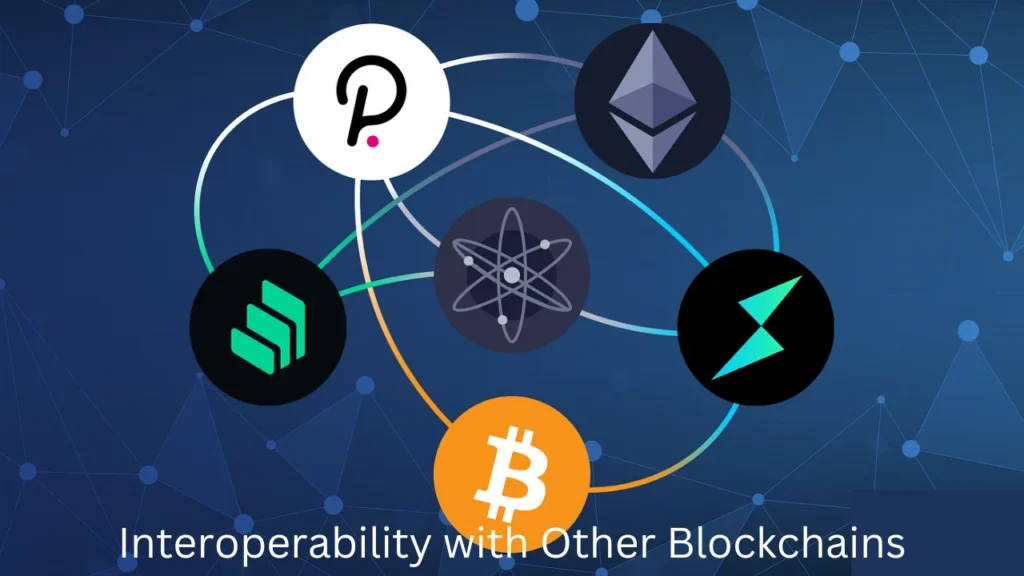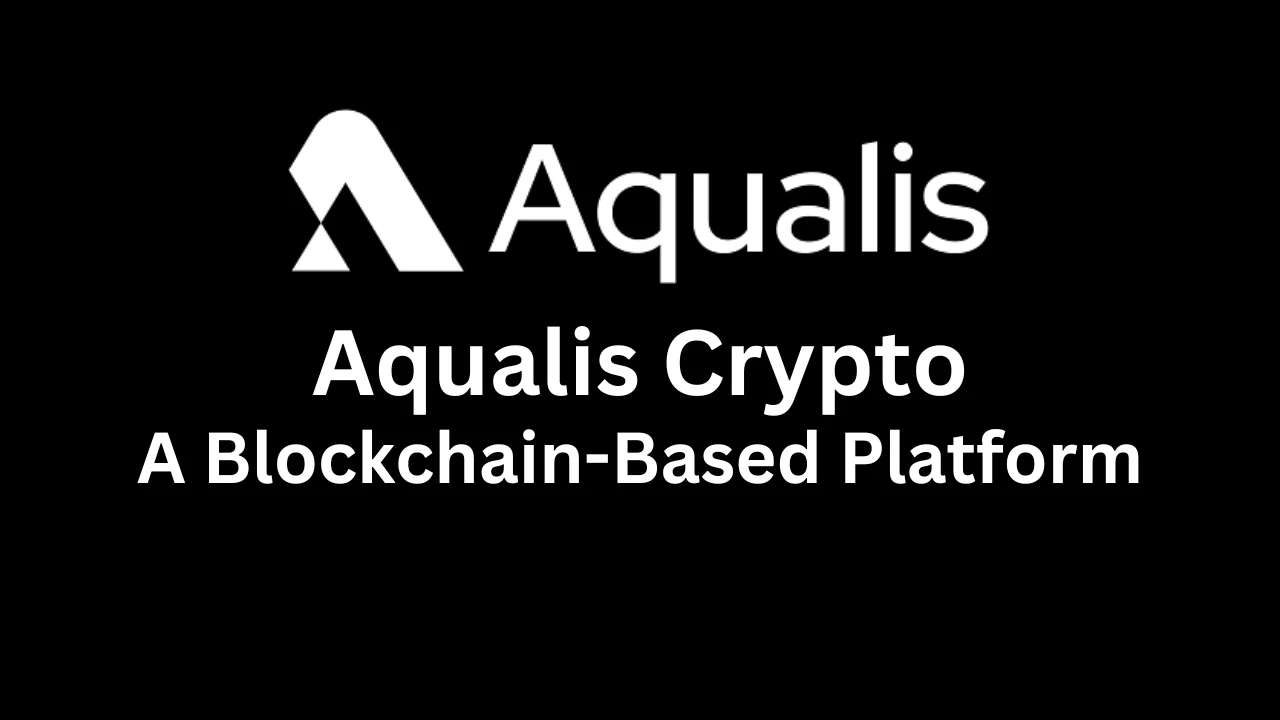As the cryptocurrency market continues to expand, new projects with innovative ideas emerge. One of these emerging players is Aqualis Crypto, a decentralized blockchain platform designed to solve many of the problems that plague older cryptocurrency networks. With a focus on scalability, energy efficiency, and security, Aqualis Crypto has positioned itself as a unique and promising addition to the growing world of decentralized finance (DeFi).
What Is Aqualis Crypto?
Aqualis Crypto is a blockchain-based platform that aims to offer a highly scalable and energy-efficient solution for digital transactions. It distinguishes itself by focusing on environmental sustainability, which has become a growing concern in the cryptocurrency world. Unlike many traditional cryptocurrencies that rely on energy-intensive proof-of-work (PoW) mechanisms, Aqualis Crypto uses a more sustainable and eco-friendly consensus algorithm. This focus on sustainability not only reduces its carbon footprint but also allows for faster transaction times and lower fees, making it a practical solution for both businesses and individual users.
The Vision Behind Aqualis Crypto
The vision of Aqualis Crypto is to create a fully decentralized financial ecosystem that is accessible to everyone, regardless of geographical location or financial status. By eliminating the need for intermediaries like banks, Aqualis Crypto empowers individuals to take control of their financial transactions. Its decentralized governance model allows users to have a say in the direction of the project, ensuring that the community drives the platform’s development. This approach fosters transparency, trust, and fairness, making it a standout in the crowded cryptocurrency landscape.
Read Also: Kirk Phillips Crypto Course: Cryptocurrency, Blockchain Education
How Aqualis Crypto Works
At its core, Aqualis Crypto operates on blockchain technology, which ensures the security and transparency of transactions. Blockchain acts as a digital ledger where all transactions are recorded in a way that cannot be altered or tampered with. This provides users with confidence in the security of their assets, whether they are engaging in trading, staking, or other financial activities within the ecosystem.
Aqualis Crypto’s blockchain network supports decentralized applications (dApps) and smart contracts, allowing developers to build innovative financial products on top of its platform. These features open the door to a wide range of use cases, from decentralized finance (DeFi) to non-fungible tokens (NFTs) and beyond. Aqualis aims to become a versatile platform that caters to a variety of industries, all while maintaining a focus on energy efficiency and scalability.
Features of Aqualis Crypto
Energy-Efficient Consensus Mechanism
One of the standout features of Aqualis Crypto is its energy-efficient consensus mechanism. Most older cryptocurrencies like Bitcoin rely on proof-of-work (PoW), which requires a massive amount of computational power to validate transactions. This leads to high energy consumption, making PoW an environmentally taxing process.
Aqualis Crypto takes a different approach by utilizing a more sustainable consensus mechanism that reduces the need for excessive energy. This makes the platform eco-friendly, contributing to its appeal for users who are conscious of the environmental impact of cryptocurrencies. The reduced energy consumption also makes transactions faster and cheaper, creating a more efficient network overall.
High Scalability for Mass Adoption
Scalability is another crucial feature that Aqualis Crypto focuses on. Traditional cryptocurrencies, particularly Bitcoin and early versions of Ethereum, often face scalability issues, meaning they struggle to process a large number of transactions quickly and affordably. This can lead to slow transaction times and higher fees, making them impractical for mass adoption.
Aqualis Crypto, however, has been designed with scalability in mind. The platform is capable of handling a significant number of transactions per second without compromising on speed or efficiency. This scalability ensures that Aqualis can support a growing user base and handle a large volume of transactions as demand increases. The network’s ability to process transactions quickly and efficiently makes it a viable option for a wide range of industries, from decentralized finance to supply chain management.
Decentralized Governance Model
Aqualis Crypto takes decentralization seriously, not just in its technology but also in its governance model. Many traditional cryptocurrencies are driven by centralized development teams, which can sometimes lead to decision-making processes that are not fully transparent or aligned with the broader community’s needs.
Aqualis Crypto’s governance is fully decentralized, meaning that anyone who holds the platform’s native tokens can participate in key decisions that affect the future of the network. This includes voting on protocol upgrades, changes to transaction fees, and other important developments. By empowering the community in this way, Aqualis ensures that its evolution is driven by its users, fostering greater trust and transparency throughout the platform. Ultimately, this decentralized governance model helps build a more collaborative and fair ecosystem.
Support for Decentralized Applications (dApps)
Another significant feature of Aqualis Crypto is its support for decentralized applications, commonly known as dApps. dApps are applications that run on a blockchain network and operate without the need for a centralized authority. They are gaining popularity across a wide range of industries, including finance, gaming, and social media.
Aqualis Crypto’s platform is designed to support the development and deployment of dApps. This allows developers to create innovative applications that can run securely on the Aqualis blockchain. Whether it’s decentralized finance (DeFi) platforms, NFT marketplaces, or decentralized exchanges, Aqualis provides the infrastructure for building powerful blockchain-based applications.
Smart Contract Functionality
Smart contracts are self-executing contracts with the terms of the agreement written directly into code. As a result, these contracts automatically enforce the rules and obligations agreed upon by the parties, reducing the need for intermediaries and significantly enhancing the efficiency of transactions. Consequently, they provide a more secure and reliable way to manage agreements without relying on third parties.
Aqualis Crypto integrates smart contract functionality into its blockchain, making it easy for developers to create contracts that execute automatically when predefined conditions are met. This feature has wide-ranging applications, from automating financial transactions to ensuring transparency in legal agreements. Smart contracts reduce the risk of fraud, as they cannot be altered once deployed, making them a secure solution for digital agreements.
Read Also: Pittsburgh Roofing Contractors: Finding the Best Services
Enhanced Security and Transparency
Security is a top priority for any cryptocurrency, and Aqualis Crypto, in particular, takes multiple steps to ensure that its platform is safe from malicious attacks. Notably, the decentralized nature of its blockchain ensures that no single entity controls the network, making it less vulnerable to hacks or corruption. Moreover, transactions are. Recorded in a public ledger, ensuring full transparency and enabling users to verify their transactions independently.
Additionally, Aqualis Crypto uses advanced cryptographic techniques to protect users’ data and ensure that all transactions are secure. This combination of decentralization, cryptography, and transparency creates a robust security framework, giving users peace of mind when using the platform.
Low Transaction Fees
Aqualis Crypto aims to provide a cost-effective solution for users, with significantly lower transaction fees compared to traditional cryptocurrencies like Bitcoin and Ethereum. One of the reasons for this is its energy-efficient consensus mechanism, which reduces the costs associated with validating transactions.
Lower transaction fees make Aqualis Crypto an attractive option for everyday users, especially those who regularly conduct transactions or engage with decentralized finance (DeFi) platforms. It also enables businesses to use the network for payments and other financial activities without incurring high costs, increasing the platform’s usability across different sectors.

Interoperability with Other Blockchains
Interoperability is a feature that allows a blockchain platform to interact with other blockchains. In particular, Aqualis Crypto places a strong emphasis on this, ensuring that its platform can communicate and work seamlessly with other blockchain networks. Furthermore, this is crucial for creating a more connected and versatile blockchain ecosystem, where users can transfer assets and data between different platforms without any hassle.
By supporting interoperability, Aqualis Crypto actively aims to facilitate cross-chain transactions and collaborations, opening up new possibilities for developers and users alike. As a result, this feature makes it easier for users to move between different blockchain networks without being. Locked into a single ecosystem.
Staking and Reward System
Aqualis Crypto offers a staking program, where users can lock up their tokens to contribute to the security and functioning of the network. In return, they receive rewards in the form of additional tokens. Staking not only provides a way for users to earn passive income, but it also strengthens the security of the blockchain by ensuring that more users are participating in validating transactions.
Comparing Aqualis Crypto with competitors
| Feature | Aqualis Crypto | Bitcoin | Ethereum | Cardano | Solana |
|---|---|---|---|---|---|
| Consensus Mechanism | Energy-efficient algorithm | Proof of Work (PoW) | Proof of Stake (PoS) (Ethereum 2.0) | Proof of Stake (PoS) | Proof of History (PoH) + PoS |
| Transaction Speed | High | Slow (7 TPS) | Moderate (15-45 TPS) | Moderate (250 TPS) | Very High (up to 65,000 TPS) |
| Scalability | High | Limited | Improving with Ethereum 2.0 | High | Very High |
| Energy Consumption | Low | Very High | Moderate (with Ethereum 2.0) | Low | Moderate |
| Governance Model | Decentralized, Community-Driven | Centralized Mining Pool Control | Moving towards Decentralization | Decentralized, Community-Driven | Centralized |
| Transaction Fees | Low | High | Moderate to High | Low | Very Low |
| Smart Contract Support | Yes | No | Yes | Yes | Yes |
| dApp Support | Yes | No | Yes | Yes | Yes |
| Interoperability | High | Low | Moderate | High | High |
| Staking Mechanism | Yes | No | Yes (Ethereum 2.0) | Yes | Yes |
Frequently Asked Questions
What is Aqualis Crypto?
Aqualis Crypto is a decentralized, blockchain-based platform focused on providing scalable, energy-efficient solutions for digital transactions, decentralized finance (DeFi), and smart contract applications.
How does Aqualis Crypto differ from other cryptocurrencies?
Aqualis Crypto stands out for its energy-efficient consensus mechanism, low transaction fees, and high scalability, making it a more sustainable and cost-effective alternative to traditional cryptocurrencies like Bitcoin.
What are the main use cases of Aqualis Crypto?
Aqualis Crypto can be. Used for decentralized finance (DeFi), staking, creating decentralized applications (dApps), smart contracts, and enabling cross-chain interoperability.
Is Aqualis Crypto environmentally friendly?
Yes, Aqualis Crypto focuses on minimizing its carbon footprint by utilizing a highly energy-efficient consensus mechanism, making it an eco-friendly option compared to traditional cryptocurrencies like Bitcoin.
Conclusion
In a rapidly evolving digital landscape, Aqualis Crypto stands out as a forward-thinking platform that addresses key challenges in the cryptocurrency space. Its focus on energy efficiency, scalability, and decentralized governance makes it a practical and innovative solution for both individuals and businesses. As the world continues to embrace decentralized finance and blockchain technology, Aqualis Crypto is likely to play a significant role in shaping the future of finance.
The bio goes here

